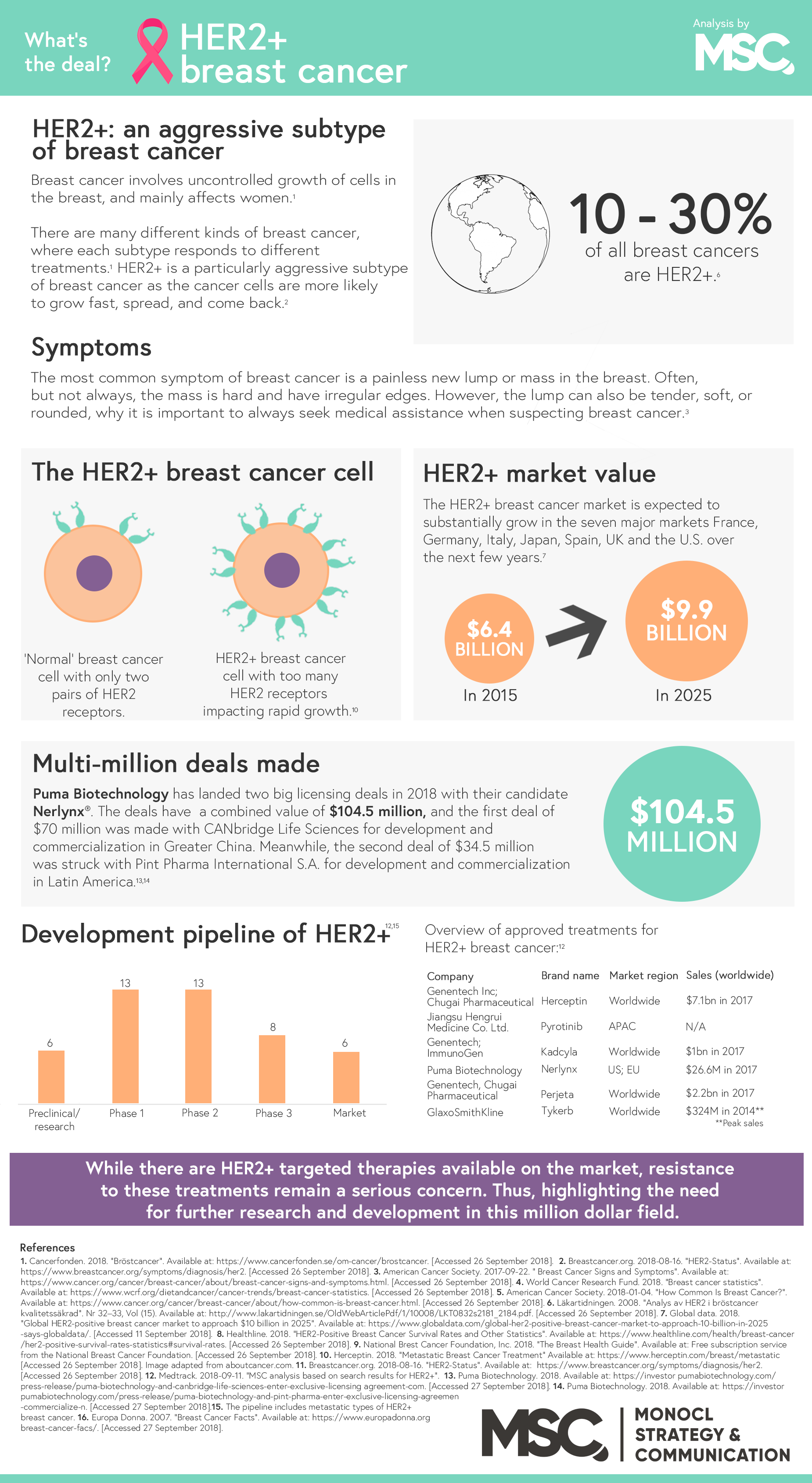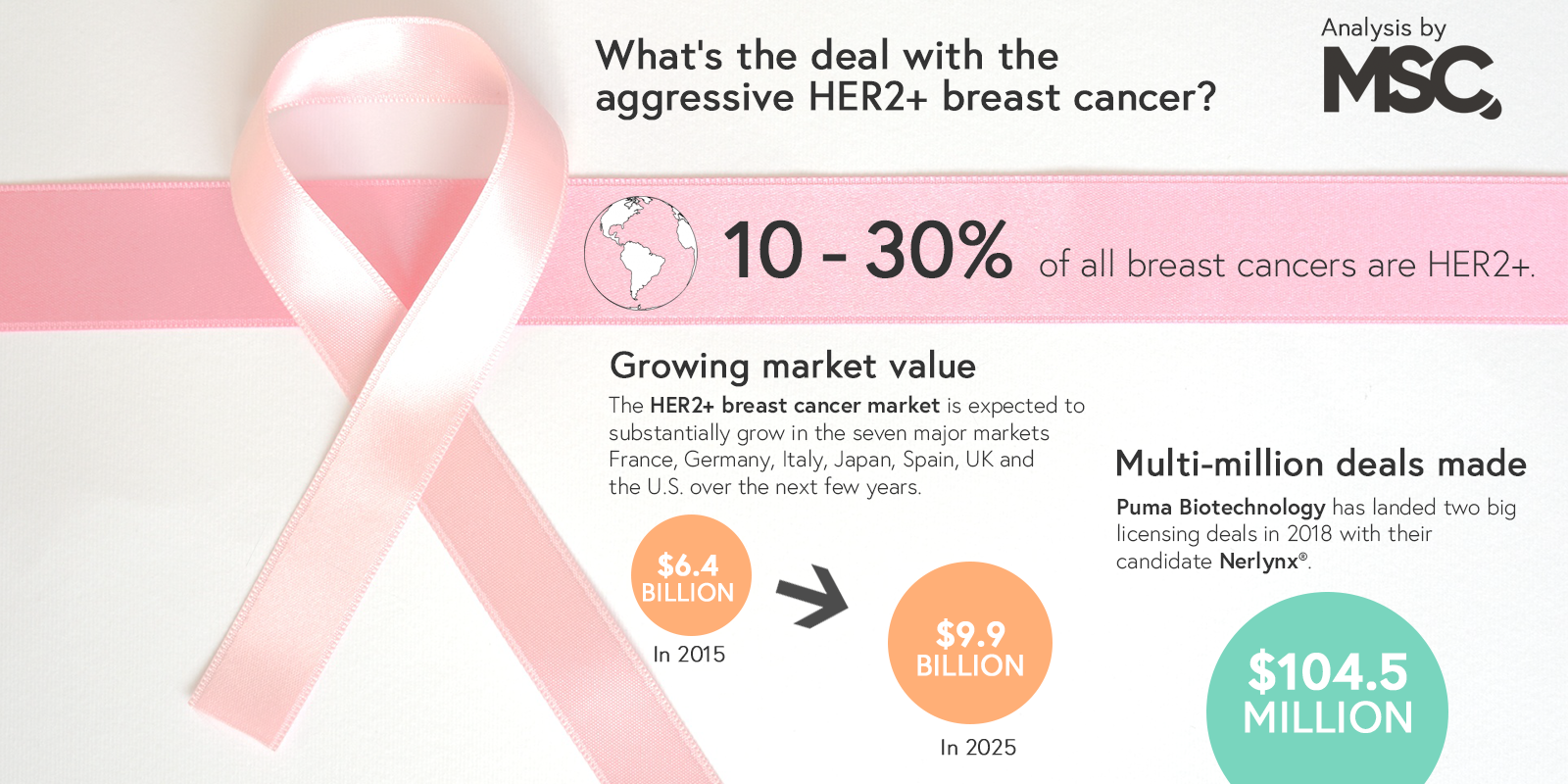Today marks the beginning of the annual Breast Cancer Awareness Month taking place worldwide. As two million people are estimated to be diagnosed with breast cancer in 2018 alone, it truly is a global concern. In many countries around the world, breast cancer is one of the most common forms of cancer among women; each day, 20 women get their diagnosis only in Sweden. We are putting the spotlight on HER2+ breast cancer, an aggressive subtype comprising 10-30% of all breast cancer diagnoses, which has a serious clinical concern of treatment resistance.
HER2+ breast cancer is a particularly aggressive subtype of breast cancer, where the gene HER2 plays a major role in the disease development due to its production of HER2 protein. The HER2 protein receptors normally help to control how a healthy breast cell grows, divides, and repair itself. In 10-30% of breast cancers, however, the HER2 gene does not work correctly and makes too many copies of itself. With the extra HER2 genes telling the breast cells to make too many HER2 protein receptors, the breast cells grow and divide in an uncontrolled way. This is called HER2+ breast cancer, and the description above explains the rationale behind its aggressive nature with faster growth and higher likeliness to metastasize and come back than other subtypes of breast cancer.
Every single day, 20 women in Sweden gets diagnosed with breast cancer.
Cancer is today, thanks to earlier detection and the emergence of new treatment options, far from the death sentence it used to be. Fortunately, research has progressed within this subtype of breast cancer as well, and thanks to the emergence of targeted therapies, the outlook for the patients has improved. Even an early stage HER2+ diagnosis is today treatable with several treatment options targeting the HER2 protein that makes the cancer particularly aggressive and is, as such, also an effective target in treatment.
The medical society does, however, agree that resistance to HER2-targeted treatments remains a serious clinical concern. Reports show that scientists are just beginning to understand why some HER2 tumors are resistant or become resistant to HER2-targeted therapies. Further research and investments in the area are encouraged to support the understanding of the HER2-growth protein to be able to find more effective treatment options for patients with this breast cancer subtype.




